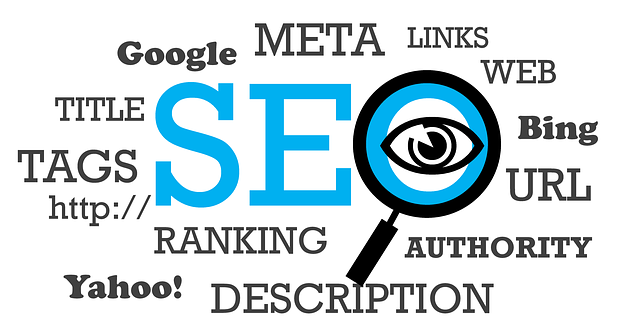SEO Services are essential for boosting online visibility, driving organic traffic, and increasing sales. Key components include keyword research for understanding user intent, on-page optimization for improving website content and structure, technical SEO for enhancing site performance, link building for attracting backlinks, local SEO for regional dominance, and analytics for tracking success. Staying updated with evolving SEO trends is vital to maintain competitiveness in the digital era. Effective integration of SEO Services requires collaboration between marketing teams and specialists to align content, structure, and user experience with search engine best practices.
“Unleash your website’s potential with an in-depth look at SEO services—the art of optimizing digital spaces. From grasping the fundamentals of search engine optimization (SEO) to mastering keyword research, this article is your guide. Learn how to craft a robust online presence through on-page optimization, ensure accessibility with technical SEO, and build authority via link-building strategies. Discover the local focus, key performance metrics, and evolving trends in the dynamic world of SEO services. By integrating these tactics, you’ll enhance your digital marketing strategy and captivate your target audience.”
Understanding SEO Services: The Basics of Search Engine Optimization

Search Engine Optimization (SEO) services are designed to elevate a website’s online visibility and performance in search engine results pages (SERPs). At its core, SEO involves a range of strategies aimed at attracting organic traffic from relevant audiences by understanding how search engines crawl, index, and rank websites. The ultimate goal is to ensure that a site appears among the top results for specific keywords or phrases that potential customers might use when searching online.
SEO services encompass various components such as keyword research, content optimization, link building, technical SEO, and analytics. By implementing these strategies effectively, businesses can increase their website’s accessibility to search engines, enhance its user experience, and ultimately drive more qualified leads and sales.
Keyword Research: Unlocking the Power of Relevant Terms
Keyword research is a fundamental step in any successful SEO strategy, and it involves uncovering the terms and phrases that potential customers use when searching for products or services related to your business. By understanding user intent and identifying relevant keywords, businesses can create content that resonates with their target audience. This process allows them to “unlock” the power of search engines, ensuring their website appears in prominent positions on results pages.
Relevant keywords are like keys that open doors to visibility. They help potential clients discover your online presence when they have a genuine need for your SEO services. With the right keywords, you can attract qualified traffic and convert these visitors into customers. Thus, investing time in thorough keyword research is crucial for any business aiming to thrive in the competitive digital landscape.
On-Page Optimization: Enhancing Your Website's Content and Structure
On-Page optimization is a crucial aspect of SEO services that involves enhancing your website’s content and structure to improve its visibility and search engine rankings. This includes optimizing titles, headings, meta descriptions, and keywords to ensure they accurately reflect what users will find on your pages. A well-optimized on-page strategy not only helps search engines understand your content but also provides a better user experience, leading to lower bounce rates and longer visit durations.
Effective on-page optimization also requires structuring your website with a logical hierarchy using headings and subheadings (H1, H2, etc.). This makes it easier for both search engine algorithms and visitors to navigate through your content. Additionally, integrating relevant keywords naturally throughout your copy can significantly improve your site’s SEO without compromising readability or quality.
Technical SEO: Ensuring Your Site is Accessible and Fast

Technical SEO is an essential aspect of any comprehensive SEO strategy, focusing on optimizing your website’s structure and performance to improve visibility and user experience. It involves ensuring your site is easily accessible by search engines’ crawlers, which are responsible for indexing web pages. One key factor is implementing structured data markup, a process that provides search engines with clear information about your content, leading to enhanced search results.
Additionally, website speed plays a vital role in Technical SEO. Fast-loading pages not only improve user satisfaction but also signal to search engines that your site is reliable and worth indexing. Optimizing images, minimizing HTTP requests, and leveraging browser caching are some techniques to boost site speed. By addressing these technical elements, you can lay the foundation for better rankings and drive more organic traffic through effective SEO services.
Link Building: Strategies to Gain High-Quality Backlinks

Link building is a critical component of any comprehensive SEO services strategy. It involves acquiring high-quality backlinks from reputable websites, which signal to search engines that your site is an authoritative and valuable resource. There are several effective strategies to gain these coveted backlinks. One approach is to create compelling, shareable content that naturally attracts links. This could include in-depth guides, original research, or infographics that provide significant value to readers.
Another powerful method is to engage in outreach, reaching out to influencers and industry leaders to request a mention or link. Building relationships with these individuals can lead to organic collaborations and opportunities for mutual benefit. Additionally, guest blogging on established sites within your niche not only exposes your brand to a new audience but also opens doors for potential backlinks. By implementing these strategies, businesses can enhance their online visibility and improve their search engine rankings over time.
Local SEO: Reaching Your Target Audience in Your Area

Local SEO is a powerful strategy for businesses aiming to dominate their regional market and connect with target customers within their geographical area. By optimizing your website for local search, you can ensure that when potential clients search for products or services related to your business in their specific location, your company appears at the top of the results. This involves implementing key strategies such as claiming and verifying Google Business Profiles, optimizing local citations, creating location-specific content, and ensuring your NAP (Name, Address, Phone number) consistency across all online platforms.
When it comes to SEO services, Local SEO is a niche yet highly effective approach that can drive significant traffic to your website and establish a strong local presence. By focusing on these localized optimization techniques, you can attract nearby customers who are more likely to convert, ultimately boosting your business’s success and fostering a deeper connection with the community.
Measuring Success: Key Metrics for Evaluating SEO Performance

Measuring success is a critical aspect of any digital marketing strategy, and SEO services are no exception. When evaluating the performance of your SEO efforts, several key metrics come into play. One of the most important is organic traffic, which refers to visitors coming to your website from search engine results pages (SERPs) without any direct payment for advertising. Tracking this metric helps assess the effectiveness of your content strategy and keyword optimization.
Another vital metric is keyword rankings. Monitoring where your website ranks for specific keywords allows you to gauge your progress in capturing a higher share of relevant search traffic. Tools that provide insights into backlinks—other websites linking to yours—are also crucial, as they influence domain authority and can significantly impact SEO performance. Additionally, conversion rates measure the percentage of visitors who take a desired action on your site, such as making a purchase or signing up for a newsletter, providing valuable data on the overall success of your optimization efforts.
Staying Updated: Trends and Changes in SEO Practices

In the dynamic digital landscape, staying updated with the latest trends and changes in SEO practices is paramount for effective website optimization. Search Engine Optimization (SEO) services are constantly evolving as search engines like Google refine their algorithms to deliver more accurate and relevant results to users. From keyword strategy adjustments to mobile-first indexing, keeping pace with these shifts ensures your site remains competitive and visible online.
Regularly reviewing industry publications, attending webinars, and engaging with SEO communities can provide valuable insights into emerging trends. By staying informed, you can adapt your strategies accordingly, incorporating new tactics like voice search optimization or enhancing user experience to meet ever-changing consumer expectations and search engine guidelines.
Integrating SEO Services into Your Overall Digital Marketing Strategy

Integrating SEO Services into your digital marketing strategy is a strategic move that can significantly enhance your online visibility and attract the right audience. In today’s competitive digital landscape, SEO has evolved from a stand-alone practice to an integral component of successful marketing campaigns. By aligning with reputable SEO service providers, businesses can tap into a wealth of expertise and tools designed to drive organic traffic and improve search engine rankings.
Effective integration involves a collaborative effort where your marketing team works closely with SEO specialists. This partnership ensures that your website content, structure, and overall user experience align with best practices for search engines. Regular analysis and adjustments enable you to stay ahead of algorithm updates, ensuring your strategy remains robust and relevant.
